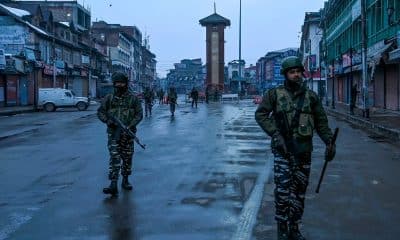Law and Crime
151 Lawmakers with Charges, Including Rape: The Troubling Nexus of Crime and Politics in India
India’s political landscape has been marred by an unsettling revelation: 151 sitting MPs and MLAs have declared cases related to crimes against women, including 16 facing rape charges. This grim statistic, highlighted by the Association for Democratic Reforms (ADR), raises urgent questions about the integrity of India’s legislative bodies and the impact of criminality on governance.
The Numbers Paint a Grim Picture
Based on the examination of 4,693 affidavits submitted to the Election Commission of India between 2019 and 2024, the ADR report reveals a disturbing trend. West Bengal leads with the highest number of lawmakers facing charges related to crimes against women, followed closely by Andhra Pradesh and Odisha. The presence of such individuals in positions of power undermines public trust and poses a significant threat to the safety and well-being of citizens, particularly women.
The fact that 16 sitting MPs and MLAs have declared charges under IPC Section 376 related to rape is a chilling reminder of systemic failures in holding these individuals accountable. Some charges even involve repeated offences against the same victim, highlighting the impunity with which such crimes are often committed.
Political Parties and Accountability
What is particularly disheartening is the involvement of major political parties in perpetuating this nexus of crime and power. The Bharatiya Janata Party (BJP), India’s ruling party, has the highest number of representatives with declared cases related to crimes against women, followed by the Congress and the Telugu Desam Party (TDP). This bipartisan complicity in fielding candidates with serious criminal charges speaks volumes about the priorities of these parties.
Despite public outcry and calls for reform, the political establishment has shown little inclination to clean up its ranks. The ADR’s call for political parties to refrain from giving tickets to candidates with criminal backgrounds, particularly those charged with crimes against women, is an urgent reminder of the need for systemic change. However, without stringent legal requirements or public pressure, it seems unlikely that these recommendations will be implemented.
The Broader Implications for Democracy
The presence of lawmakers with such grave charges in India’s legislative bodies is not just a legal or moral issue; it is a profound threat to the country’s democratic fabric. When those who are meant to uphold the law and represent the people are themselves embroiled in serious criminal cases, it erodes the very foundations of democracy. It also sends a dangerous message to society: that power and influence can override justice and accountability.
Moreover, the impact on governance cannot be overstated. Lawmakers facing such charges are more likely to prioritize their own protection over public service, leading to compromised policy-making and governance. This is particularly troubling in a country like India, where the legislative process plays a crucial role in addressing complex social issues, including gender-based violence.
The Way Forward: Reform and Vigilance
The ADR’s report is a wake-up call for India’s electorate, judiciary, and civil society. The need for electoral reforms that disqualify individuals with serious criminal charges from contesting elections is more pressing than ever. Fast-tracking court cases against MPs and MLAs and ensuring thorough investigations by the police are also crucial steps in restoring faith in the system.
Voters, too, have a critical role to play. The power to elect representatives should not be taken lightly, and citizens must demand greater accountability from those who seek to serve them. By refusing to support candidates with criminal backgrounds, the electorate can send a clear message that crimes against women, and indeed any serious criminal conduct, have no place in India’s political system.
The troubling intersection of crime and politics in India is a complex and deep-rooted issue that requires urgent attention. The ADR’s report highlights not just the scale of the problem but also the dire need for comprehensive reforms. As India continues to strive towards becoming a truly inclusive and democratic society, the onus is on its political leaders, institutions, and citizens to ensure that the corridors of power are free from those who pose a threat to the very principles on which the nation was founded.








































Pingback: Government Response to Crimes Against Women: Action or Rhetoric?